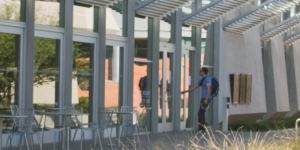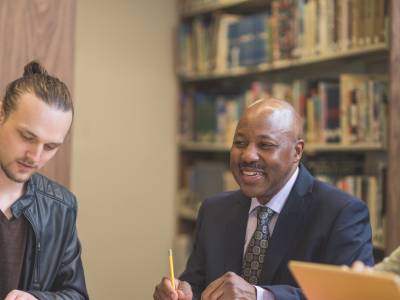Law According to Harvard - Class 2008
Paying it forward
By ricey on Jul 10, 2007
To Toni: I deliberately patterned my blog title after yours. =) I've been an avid LLM-Guide fan for about a year and a half now, back when going to Harvard was just a dream for me. This site and all the wonderful people in it have been more than helpful in my pursuit of that dream. To the numerous people here whom I bugged for comments on my odds of getting in, for evaluation of my meager credentials, etc. Thank you very much. I see this blog as some sort of a payback to this community. Hopefully, my experiences in HLS will be of some use to those who are interested.
In a nutshell, I went to Harvard because my areas of focus are comparative constitutional law and Internet law and Harvard has the experts in these fields, e.g. Mark Tushnet, Noah Feldman, Frank Michelman, and for Internet Law, there is Yochai Benkler, John Palfrey and Jonathan Zittrain.
Getting In
By ricey on Jul 21, 2007
This post is in reply to the questions posed by Scholarship.
I would say that getting in a good LLM program is the hardest part. Before I say anything else, I do not profess to be an expert on LLM admissions as I am sincerely, although pleasantly, surprised by my HLS admission. I applied to four schools, by the way - Columbia, NYU, Michigan and Harvard. Harvard and NYU accepted me. Michigan rejected me, but not without saying that I should try again if I have an additional year of experience. Columbia just said no after about 6 months of waiting (and I was preparing already for HLS) Since HLS is my first choice (see my areas of interest in the previous post), I didn't really care about the others.
As its been said countless times in this board, I can say that from my experience, its not just about the grades. Decent grades do matter of course, the higher, the better. (with the corresponding high class rank) But it's not the end-all, be-all. A friend of mine who went to Yale for his LLM summarized the four (4) basic requirements as follows: (I would suppose that this applies to at least the top 10 schools, it was my own guide)
1. Good grades - higher class rank, the better. Basically, this is just to show the Admissions Committee that you have better than average academic potential.
2. Publications/teaching - you'll be doing a lot of writing and thinking in graduate school. If you have published or if you are teaching, it shows that you are academically inclined or intellectually curious or whatever you call that thing.
3. Great Recommendations - remember that you are just a paper to the Admissions people. A good recommendation letter tries to paint a person behind that picture, as viewed by someone with whom you've had a good relationship, be it your teacher/professor or employer. Put more weight on academic recommendations rather than professional ones, and have someone comment on your writing/thinking abilities specifically.
4. Great personal statement - this is the most difficult for me - trying to figure out a legal problem and crafting a solution or something to address it, and then mixing it with a personal statement that shows why you want to go to that school and why (it would seem) doing the LLM is the right next step in your professional life. Other schools separate the personal statement and the issue paper. Harvard combines it into a 3 page one. The challenge is to say a lot in the fewest words.
That's about it for now. I will try to update this when I start this September.
HLS early weeks
By ricey on Sep 23, 2007
Indeed, I found that HLS is all what it was hyped to be, an amazing place to learn the law.
I only have 3 classes for the fall term for a total of 10 credits. And on top of that, we have to start preparing for our LLM paper (at least for those who opt to do this) as early as now. The teachers I have so far are fantastic. I'm learning Copyright/IP under Yochai Benkler, Legal Theory/History under Duncan Kennedy and Comparative Con Law under Ran Hirschl, a visiting professor from UoToronto and who is likewise an accomplished scholar in his field. (see his book Towards Juristocracy) Class size ranges around 30-35, except for Benkler's where a total of 60 people attends. There are opportunities for discussion and interactivity but by and large, its done in lecture format. These are all courses, of course. Seminars and reading groups follow a different classroom dynamic.
I only have classes from Mon-Wed but I usually spend the next 3 days preparing for the following week. It's hard work but not miserable. Learning is fun and all professors (at least those whom I've corresponded with) are eager to give you their thoughts and to answer any inquiries you might have. I was quite surprised because I thought they would really be busy to bother with a lowly LLM looking for ideas for a paper. Certainly different from where I came from.
Also, it seems like the only thing you need to do in Harvard is study. They give you everything you need -course packs neatly printed, free coffee, free printing to a certain extent, and all the other offices seemingly coordinate to make sure you get the most out of your stay in HLS. There is an abundance of activities going on everyday so that you only have to choose which one to attend.
Will update more next time.
LLM News
LLM Articles
Why Tech Law is the Hot New LL.M. Focus in an AI Era
Nov 14, 2024
Schools are helping lawyers prepare for a fast-changing legal world impacted by AI and developing technology. Students can benefit from a cutting-edge curriculum and new job opportunities.
Connect with Top California Law Schools
Nov 07, 2024
The California Law LL.M. Consortium is giving prospective students in Milan and London the opportunity to meet school and admissions representatives. They will hear about top legal issues and learn about how a U.S. LL.M. can benefit their careers.
Leaping Back into Firm Life After an LL.M.
Nov 05, 2024
Leaving school behind can feel daunting but if a graduate understands the different expectations and is conscious of new technology, it can make returning to a firm that much easier.
Making the Most of Your LL.M.: Why Extracurricular Groups Matter
Oct 28, 2024
Activities outside class time can give students a more well-rounded experience during their degree. They can build crucial skills and expand a student's network to benefit their post-school life.

-c19f8.png)











